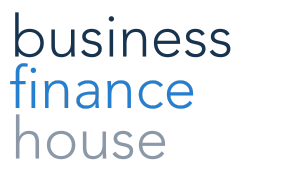There are times when a business needs to access funds as quickly as possible and you may need to find out how to get a short term business loan
This may be for cash-flow reasons, a new equipment purchase, to pay for materials or subcontracted services, or to help take advantage of a new commercial opportunity.
While there are a variety of ways to raise capital, a short-term business loan will often be the most practical and straightforward.
But what is a short-term business loan and how do you secure?
What is a short-term business loan?
A short-term business loan is an unsecured loan taken out by a business that will have a repayment period of less than a year.
It is quick and accessible, allowing businesses to meet their short-term financial needs. Because it is short-term, a loan of this type is usually easier to obtain. The funds are usually be disbursed faster than other forms of business finance, making it a practical option when money is required quickly.
Short-term business loans are also flexible in putting the business owner in control when it comes to how the funds are spent.
This type of loan may have higher interest rates than those that are taken out for a longer borrowing period. Businesses pay more for the immediacy and flexibility, but payments are fixed for the duration of the loan.
And because the loan period is shorter, the interest paid overall may be lower than that paid on a longer term with a lower interest rate.
What are the advantages of a short-term business loan?
If your business is looking to access funding quickly for whatever reason, a short-term business loan has a range of advantages. These include:
Short-repayment term
The principal advantage of a short-term business loan is the short repayment period. Businesses are not tied into a longer repayment schedule that can become an unwanted burden when circumstances change. Lengthy repayment terms can increase the chances of damaging the finances of the business, particularly during an economic downturn. Shorter repayment periods make it easier to plan with a near-term end date when repayments will come to an end.
Usually unsecured
Short-term business loans will not usually be secured against a business or personal assets, like property or equipment. This means should you be unable to repay your loan for any reason, your assets will not be at risk. Of course, failure to repay any loan will have serious consequences, not least for your future ability to borrow money, but short-term unsecured loans carry fewer risks for the borrower. In some instances, personal guarantees may be requested by the lender, always seek independent legal advice in these situations.
Easy-application process
The process for securing a short-term business loan is usually faster and easier than applying for other forms of lending. It will require less paperwork, can usually be applied online, and the decision-making element is quicker.
Higher rates of approval
Short-term business loans have higher rates of approval than other forms of business finance. Because short-term business loans have a shorter repayment period and are usually for lower amounts, the lender is liable to less risk. This makes them an attractive option for borrowers because being declined not only means time is lost and necessary funding isn’t in place, but it can also negatively impact a credit rating.
Flexible use
Short-term business loans tend not to come with any strings attached beyond the requirement to ensure they are repaid in line with the agreed schedule. They can be used for any purpose giving business owners complete flexibility as to how they spend the money.
If you’ve decided that a short-term business loan is right for your current needs, how should you go about securing one?
Check your eligibility
First, you need to check that you are eligible to apply for a short-term business loan. The following criteria will usually apply:
-
- The owner of the business must be aged over 18
-
- Your business must be registered as a limited company in the UK. If you are a sole trader or partnership, short-term finance will usually be obtained via a personal loan or other forms of short-term credit
-
- You will usually need to have been trading for at least six months
-
- There may be a minimum monthly turnover. For some lenders, this may be around £5,000 but others may accept lower amounts
Tidy up your finances
If you’re considering applying for a short-term business loan or any other form of credit, it’s always advisable to take a look at your current finances. If you have any small outstanding debts that you can pay off prior to your application then you should do so. Taking out and then paying back credit improves your credit history and tells lenders that you’re a reliable applicant.
Explore the market
The market for short-term business loans is extensive so you will need to do your research. Some lenders may be better suited than others to your requirements. Some lenders are big household names, others will be more specialist. If you have a poor credit history, then you will need to find a lender who specialises in lending to businesses with a less-than-perfect credit score. It’s always advisable to check how competitive the lender is compared to other options.
Other business owners and professionals in your industry may be able to advise on different options. You can ask for recommendations from people who have experience with short-term business loans.
Exploring the market and finding the right lender will not only increase the chances of your application being accepted but could also reduce the amount you pay back over time.
Gather the required documentation
Before you begin the application process you should make sure you have all of the relevant documentation at hand. This will vary depending on the lender and you should thoroughly check what’s required before you begin your application. Lenders may wish to see financial documentation such as tax returns, bank statements, and financial projections. Personal identification and business registration documents will also be required.
Complete the application
Usually, the application will be made online making it easier for both parties. It’s important to take your time completing the application, making sure you have provided all of the relevant information. Any omissions or errors could result in your application being delayed or even rejected.
Some lenders may still require you to complete hard copies of the application form. This can add extra delays waiting for the forms to arrive and then return. Other lenders may require an in-person application, particularly if you have a patchy credit history or you’ve only recently begun trading.
If you are applying through a financial advisor, they will assist with the application process and will ensure everything that is required on the form is completed.
The completed application should then be submitted either electronically or returned via post. If you are required to make a postal application it may be advisable to send your completed application via a registered service to ensure safe and speedy delivery.
Wait for the lender’s decision
Once your application has been made and received by the lender they will then review it and reach a decision. With straightforward online applications from borrowers with a good credit history, this is likely to be fairly quick. Other lenders may take longer, and the length of time it takes to review applications should be visible on their website.
In some instances, a lender may ask for more information before it can approve the application. In this case it’s important to supply what is required as quickly as possible to prevent further delays.
If the lender has chosen to approve your application, you will be given the opportunity to accept or decline the offer. Check the term of the loan, the amount being offered, and the repayment duration to ensure that it matches your expectations. You will then be asked to sign a loan agreement that indicates your understanding and acceptance of the terms and conditions prior to funds being released.
If your application is rejected, a lender may give you some information about how they reached that decision. If it is your first attempt, it might be advisable to seek independent advice from a business finance specialist. They can ensure that you don’t rack up several rejected applications with the negative impact that it can have on your credit score.
The funds are disbursed
After your application has been approved and you have signed the loan agreement, the funds will be released into a nominated bank account. If you haven’t already set up a direct debit agreement for your repayments as part of the application process, then you should do so now. Make sure you know when the first payment is due and ensure that you budget accordingly.
Will a poor credit record prevent you from securing a short-term business loan?
Having a poor credit history can make it more difficult to secure a short-term business loan, but it does not necessarily prevent you from getting one. Lenders will typically consider a variety of factors when evaluating loan applications, including the creditworthiness of the borrower and the financial health of the business.
A business with a particularly poor credit history may have to pay higher interest rates or provide additional collateral in order to secure a loan. There are some lenders that specifically focused on providing loans to small businesses and startups with a poor credit history. However, the terms and interest rate may be more favourable for the lender.
If your business has a poor or patchy credit history it’s essential that you apply to the appropriate lenders for any new loan. Too many hard credit checks on your credit report may further limit your ability to access lending.
Consult a business finance consultant
Working with a business finance consultant can save you time and money. They will be able to advise you as to the likely success of your application, as well as which lenders might be more suitable. This can be particularly helpful if your business is relatively new or you have a poor credit history. They can help take much of the hassle out of the application process, ensuring that you don’t end up with too many hard credit checks on your credit history and that you get the funds you need quickly.
They can also ensure that you get the most competitive deal possible and don’t end up paying too much for your loan.
How Business Finance House can help
At Business Finance House, we take the guesswork out of securing the short-term finance you need for your business. We understand the market and work with a vast panel of lenders to match your needs to the right lender.
We can reduce the risk of your application being turned down and having to make multiple applications with the negative impact that can have on your credit score.
We operate nationally but our business loans in Liverpool and Cheshire allow us to take advantage of local knowledge hopefully giving us a competitive edge. Contact us to find out more about short-term business loans, check eligibility and apply.





